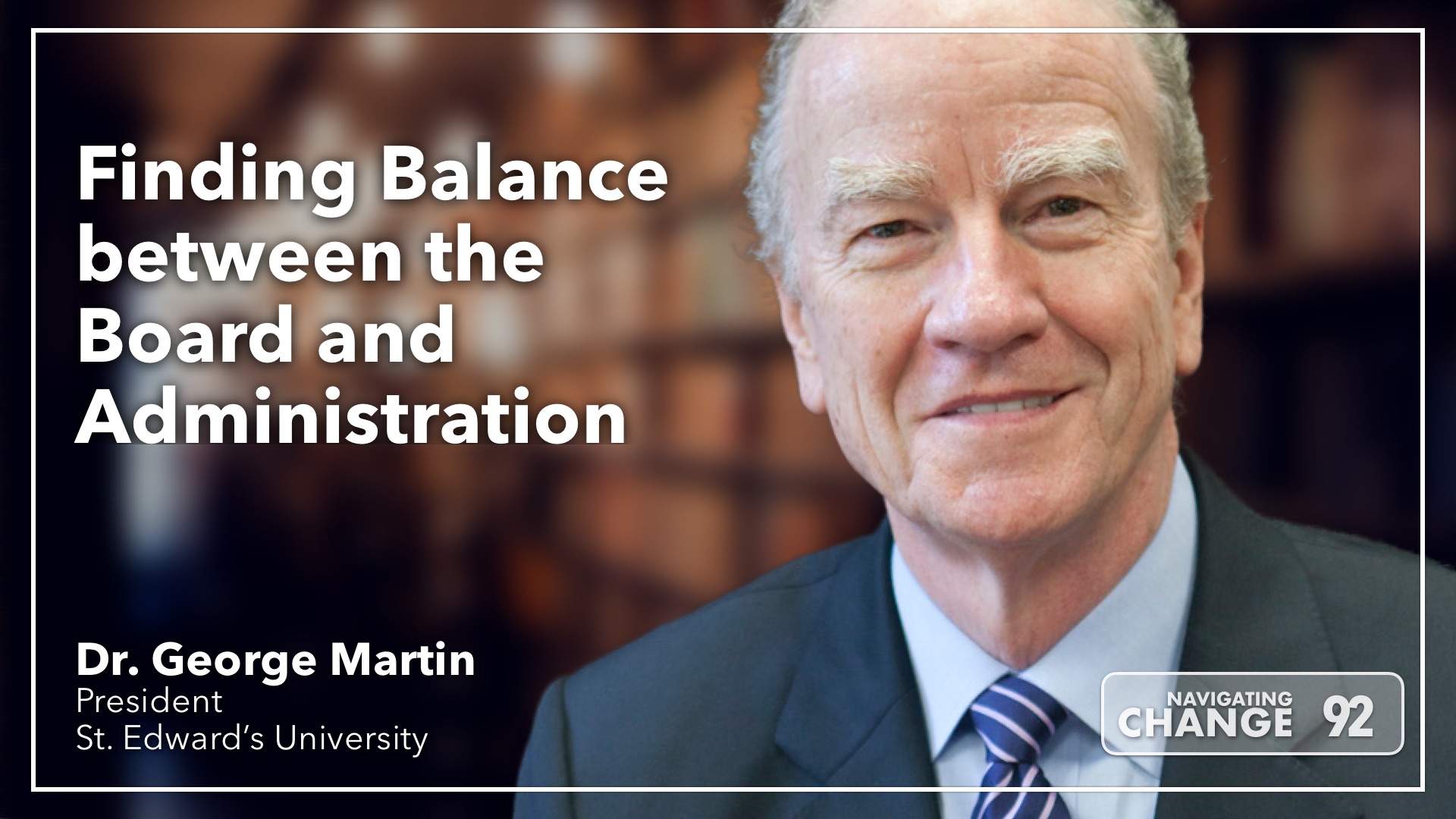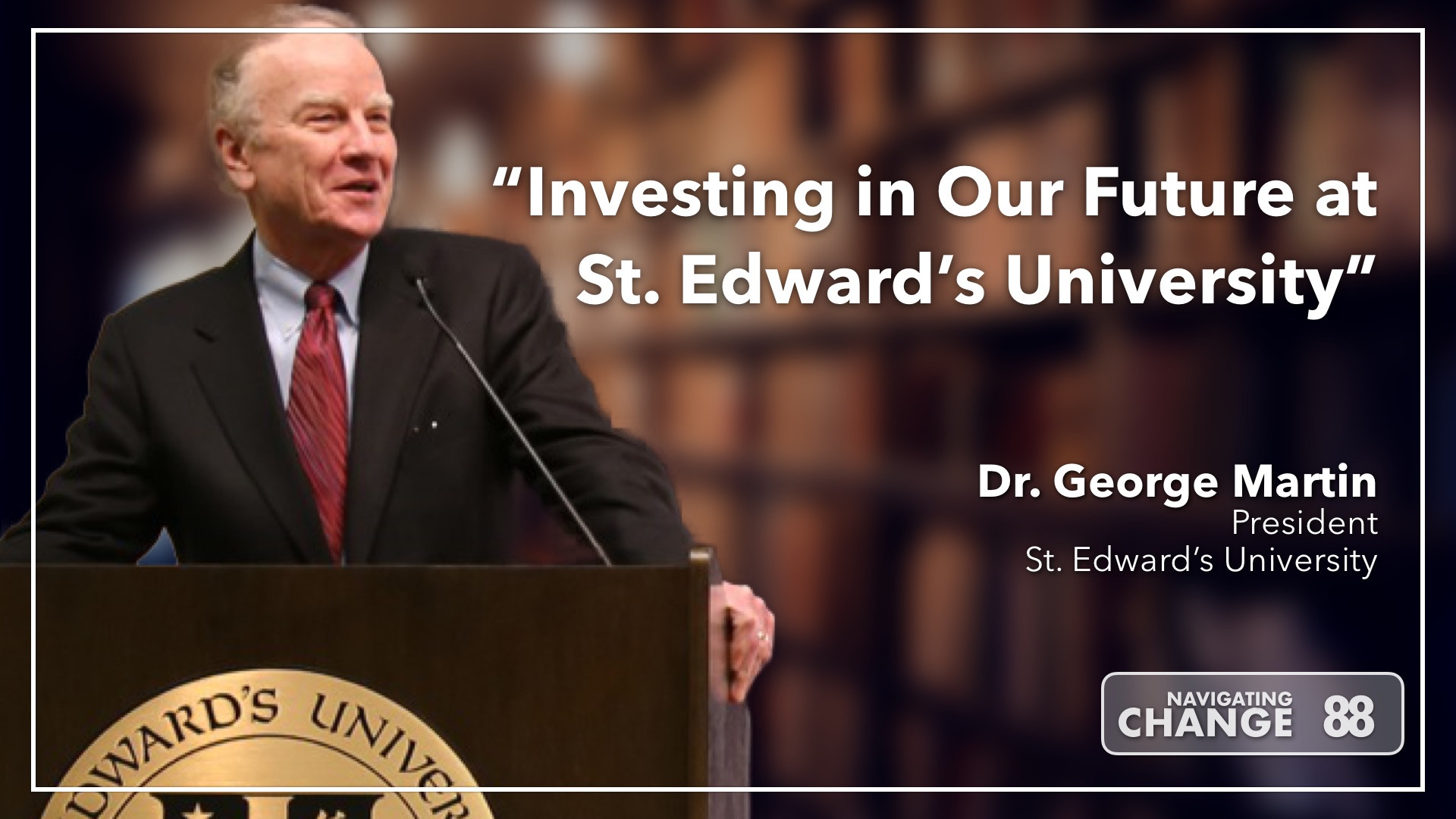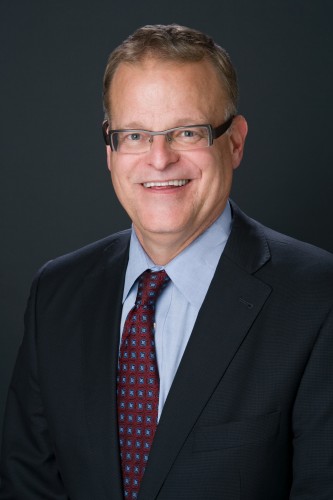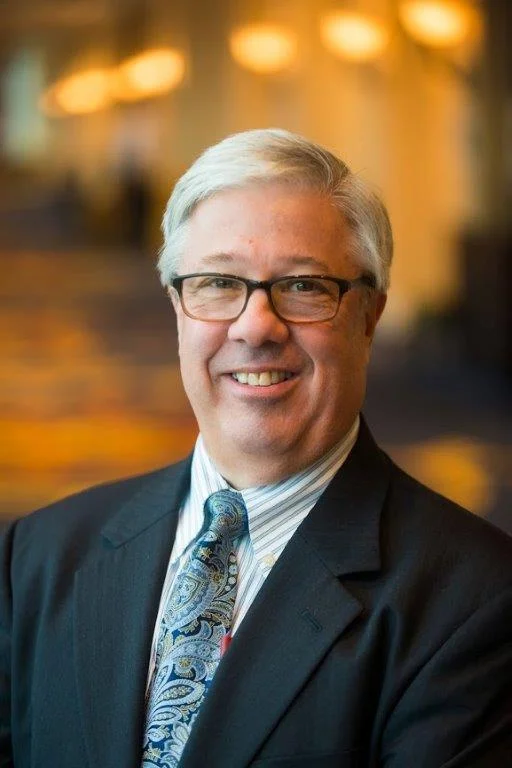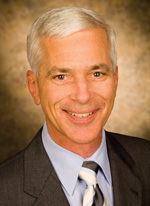Last week, Canisius College President John Hurley welcomed faculty, students, and staff to the 2014-15 academic year at the school’s convocation event. In his speech, he outlined a vision for college success by way of three key areas: Redefinition — understanding what it means to be a student-centered institution; Revitalization — embracing new approaches to the academic model; and Innovation — evolving the business model to support a more agile institution.
This week on Navigating Change, President Hurley joins Howard Teibel and Pete Wright to reflect on his role as he begins his fifth year of service. He shares his approach to building trust in times of challenge, the critical importance of communication, and building support and understanding across a diverse body of students, faculty, and staff.
President Hurley offers candid insight into his role and it’s many opportunities and challenges.
About John Hurley
John J. Hurley has been the President at Canisius College since July 1, 2010. Mr. Hurley served as Executive Vice President and Vice President of College Relations at Canisius College since 2007 and 1997 respectively.
Prior to Canisius, Mr. Hurley practiced law for 16 years. He concentrated his practice in the areas of secured lending, bankruptcy and insolvency, creditors’ rights and acquisitions of troubled companies. He is also chair the Bishop’s Council on the Laity for Bishop Kmiec. Mr. Hurley is a past member of the city of Buffalo’s Charter Revision Commission and past president of the St. Joseph’s Collegiate Institue Board of Trustees. He also serves as a Trustee at Canisius College.
He is the recipient of the 2002 Canisius College Distinguished Alumnus Award, which recognizes alumni who have distinguished themselves in their chosen careers. Mr. Hurley is also a recipient of the college’s LaSalle Medal (1996), the highest honor conferred upon an alumna/us for service to alma mater, and was inducted into the Signum Fidei Society of St. Joseph’s Collegiate Institute (1998). He is a 1978 alumnus of Canisius College.
A native of Buffalo, Mr. Hurley graduated from St. Joseph's Collegiate Institute in Kenmore and earned a bachelor of arts degree, summa cum laude, in English and history from Canisius College. He was awarded a full scholarship to the University of Notre Dame School of Law, where he earned a juris doctor degree in 1981.


